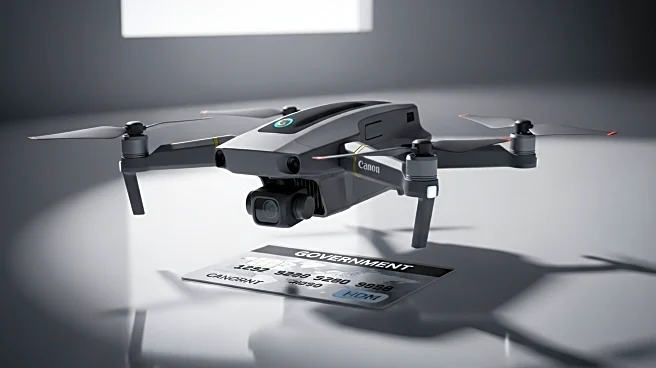What is the story about?
What's Happening?
The Pentagon has implemented a new policy allowing certain military units to purchase drones using government credit cards. This policy shift, initiated by a July 2025 memo from War Secretary Pete Hegseth, reclassifies drones under 55 pounds as 'consumables,' similar to ammunition. This change enables commanders to bypass traditional procurement processes, which are often lengthy, and directly purchase drones for testing and experimentation. The policy aims to accelerate the adoption of new drone technologies by allowing field-level experimentation. However, this approach has raised concerns about oversight and accountability, given the history of misuse associated with government purchase cards.
Why It's Important?
This policy change is significant as it reflects a shift towards more agile and decentralized military procurement processes. By allowing direct purchases, the Pentagon aims to keep pace with rapid technological advancements in drone technology, which are being leveraged by adversaries globally. This could potentially enhance the U.S. military's operational capabilities. However, the lack of stringent oversight mechanisms could lead to financial mismanagement and security risks, as drones with onboard cameras and radios could be vulnerable to cybersecurity threats. The policy's success will depend on balancing speed with accountability to prevent misuse and ensure effective integration of new technologies.
What's Next?
The Pentagon will need to establish robust oversight mechanisms to monitor the use of government credit cards for drone purchases. This includes implementing transaction-level tracking and independent receipt checks to prevent misuse. Additionally, the military may need to conduct regular audits and provide training to ensure compliance with cybersecurity standards. The policy's impact on military operations and procurement processes will likely be evaluated in future congressional hearings. The success of this initiative could influence broader defense procurement reforms, potentially leading to more flexible and responsive acquisition strategies across the military.
Beyond the Headlines
The policy could democratize access to military procurement, allowing smaller drone manufacturers to compete with established defense contractors. This could foster innovation and reduce costs. However, it also raises ethical concerns about the potential for increased surveillance capabilities and the implications for privacy and civil liberties. The policy's long-term success will depend on addressing these ethical considerations while maintaining operational effectiveness.
















